| |
|
| |
張乾琦 pinyin Zhang Ganqi
|
|
1961
|
Chien-Chi Chang 張乾琦 was born inTaiwan into a working class family.
|
|
|
|
|
|
He studied at Soochow University of Taipei.
|
| |
|
|
1984
|
Graduated with a bachelor degree in Art, ( B.A.), he continued his studies in United States |
| |
and started to develop an interest to photography. |
| |
|
|
1990
|
He graduated with a Master degree in Science, from Indiana University, Bloomington. |
| |
|
|
1991
|
He began working as a photojournalist at the Seattle Times then at Baltimore Sun.
|
| |
|
|
1995
|
He joined the Magnum photography agency .
|
| |
|
| |
His series The Chain, a collection of 48 portraits taken in a mental asylum, in Taiwan |
| |
made him famous in Biennials of Venice ( 2001 ) and Sao Paolo ( 2002 ) |
| |
|
|
2003
|
They are published in a book under the same title which obtained the First Place, |
| |
in Pictures of the Year International United States. |
| |
|
| |
Other topics in his books :
|
| |
Marital ties through joyless photos of Taiwanese weddings IDo, IDo, IDo.
|
|
2005
|
Description of the business around the marriages negotiated between Taiwanese
|
| |
and Vietnamese : Double Happiness.
|
| |
|
|
2008
|
His work Doubleness ( begun in 1992 ), on the life of illegal immigrants from China's
|
| |
coastal Fujian Province, was first exhibited at the National Museum of Singapore in
|
| |
2008 and at the Taiwan Pavilion of the Venice Biennial in 2009.
|
| |
|
| |
Danièle Sicard
|
| |
|
|
•
|
| |
|
|
|
Awards selection
|
| |
|
|
1998
|
First Place,
|
Daily Life, World Press Photo, the Netherlands
|
|
1998
|
Magazine Photographer of the Year
|
National Press Photographers Association, USA
|
|
1999
|
Visa d’Or
|
Visa Pour L’image, Perpignan, France
|
|
1999
|
W. Eugene Smith grant
|
Memorial Fund for Humanistic Photography, USA
|
|
2003
|
First Place
|
Pictures of the Year International, USA
|
| |
|
|
|
|
•
|
| |
|
| |
Solo exhibitions selection
|
| |
|
|
2004
|
28.02 12.12 The Chain Southeast Museum of Photography Daytona Beach United States
|
|
2004
|
15.04 22.05 China Town JulieSaul Gallery New York United States
|
|
2005
|
18.01 30.01 The Chain fotogallery Cardiff United Kingdom
|
|
2006
|
04.11 30.12 The Map Chi Wien Gallery Taipei Taiwan
|
|
2008
|
Doubleness National Museum Singapore Singapore
|
|
2009
|
17.01 28.02 Chien Chi Chang Chi Wien Gallery Taipei Taiwan
|
| |
|
| |
Collective exhibitions selection
|
| |
|
|
2001
|
Venic Biennial Venice Italy
|
|
2002
|
Sao Paulo Biennial Sao Paulo Brazil
|
|
2003
|
International Triennial Center of Photography New York United States
|
|
2009
|
07.06 22.11 Venic Biennial Taiwan Pavilion Venice Italy
|
|
2012
|
Rencontres d'Arles Antique Theatre Arles France
|
|
2014
|
02.06 02.08 Home The Sherman Contemporary Art Foundation Sydney Australie
|
|
2014
|
24.05 02.08 Home The Sherman Contemporary Art Foundation Sydney Australie
|
|
2014
|
01.10 31.10 Drive In Galerie Esther Woerdehoff Paris France
|
|
2015
|
11.09 08.12 Contact Shets Magnum FOAM Photography Museum Amsterdam Netherlands
|
|
2016
|
26.05 10.06 loop Festival Barcelona Spain
|
|
2016
|
20.09 20.06 Asia Now - Art Fair Paris France
|
|
|
|
|
•
|
| |
| |
|

|
| |
| |
|

|
| |
| |
| |
|
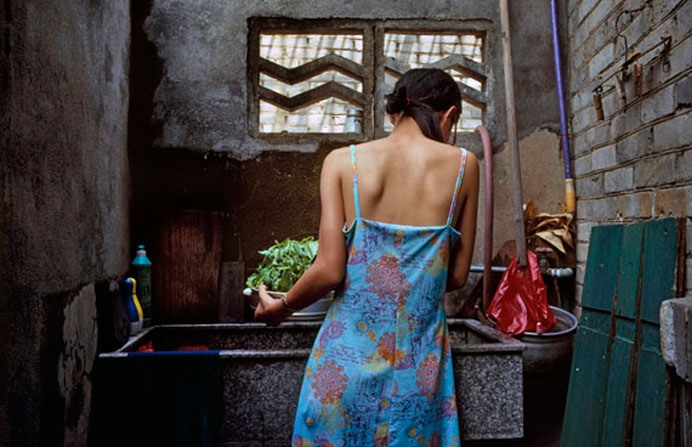
|
| |
| |
|
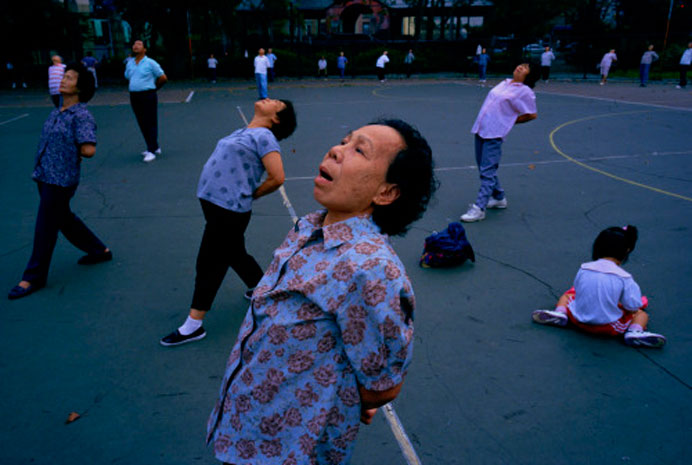
|
| |
| |
|
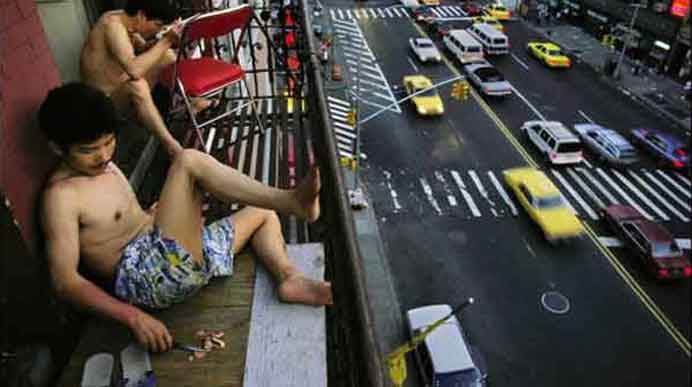
|
| |
| |
|

|
| |
| |
|

|
| |
|
Je vis par la photographie. Prendre des photos est ma manière d'agir et de réagir face à la vie.
|
|
J'ai une conscience sociale, mais au bout du compte, ce sont les images qui m'émeuvent réellement;
|
|
Chien-Chi Chang
|
|
| |
|
•
|
|
|
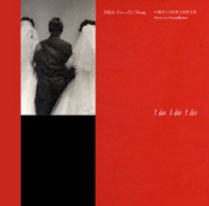 |
|
Chien-Chi Chang
|
Ivy Liu -
|
| |
I do, I do, I do
|
Premier
|
| |
texts : Sarah Yeh, Cheryl Lai
|
Foundation
|
| |
26,03 cm x 26,03 cm
|
2002
|
| |
120 p
|
|
| |
|
|
| |
|
|
| |
|
|
| |
|
|
|
| |
|
|
|
| |
|
|
|
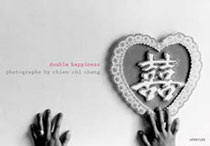 |
|
Chien-Chi Chang
|
APERURE
|
| |
double happiness
|
2005
|
| |
texte : Claudia Glenn Dowling
|
|
| |
23,49 cm x16,51 cm
|
|
| |
160 p
|
|
| |
isbn : 978193178856
|
|
| |
|
|
|
| |
|
|
|
| |
|
|
|
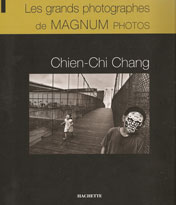 |
|
Chien-Chi Chang
|
Hachette
|
| |
Les grands photographes de MAGNUM photos
|
2008
|
| |
en français
|
|
| |
25 cm x 22,5 cm
|
|
| |
48 p
|
|
| |
|
|
| |
|
|
| |
|
|
| |
|
|
|
| |
|
|
|
| |
|
|
|
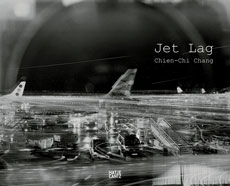 |
|
Jet Lag
|
Hatje Cantz
|
| |
Chien-Chi Chang
|
2015
|
| |
textes : Chien-Chi Chang
|
|
| |
en anglais
|
|
| |
28 cm x 22,5 cm
|
|
| |
120 p
|
|
| |
isbn : 978 3 7757 4025 8
|
|
| |
|
|
|
| |
|
|
|
| |
|
|
|
|
•
|
| |
|
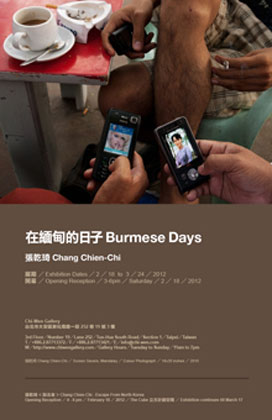
|
|
Chien-Chi Chang 張乾琦 - 在緬甸的日子 Burmese Days
18.02 24.03 2012 Chi-Wen Gallery Taipei - poster -
|
| |
|
•
|
|
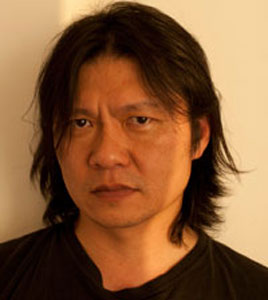
![]()